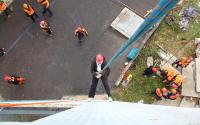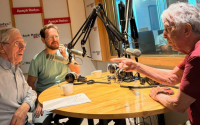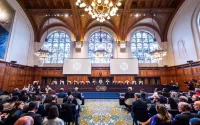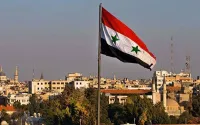8 October 2006The Independent
My host at the Gaza refugee camp sounds delighted as he picks up the phone, urging some colleagues to "come on over" with a mischievous smile. The recipients of his call are two members of Hamas's military faction, responsible for firing home-made Qassam rockets into Israel (this is three years ago). He himself is a senior Hamas politician, and can't wait to see their reaction on finding a Jewish guest at his home. Two young men walk in, lean and serious-looking. They've come to discuss with my host their response to the death of a fellow Hamas member, killed in his car by an Israeli missile.
"What is the point of firing rockets?" I ask, "when Israel punishes the Gaza Strip with extensive military incursions?" They answer, unhesitating: "We want Israelis, too, to feel fear. Not just Palestinians."
There is no point in arguing with them about the politics and morals of revenge as a tactic. I could not convince them that targeting civilians merely reinforces Israelis' support of the Occupation. But I understand what they mean about fear. Twelve years of living among Palestinians has opened for me a whole spectrum of fear, the subtlest hues of fright experienced by a whole nation every minute of every day, a nation whose life is dictated by foreign rule. And does not the dictionary define terror as a "state of intense fear"?
A helicopter gunship spits fire at hundreds of unarmed demonstrators, many children, in front of an army post in the Gaza Strip at the outbreak of the uprising in 2000. People are hit. Wounded and killed. Was it the chopper's fire that got them or the machine guns hidden 3km away?
A tank blocks the road between Nablus and a village nearby. But people have to get home. They try to pass and the tank toys with their fear: rotates its cannon, raises it, lowers it again, moving towards them.
Soldiers point rifles at a family crowded in a single room. Adults comfort their crying children. For days on end. These are occupied homes in Jenin and in Ramallah, in Bethlehem and in Rafah. Outdoors lies curfew. The only reminder of their presence is the occasional burst of gunfire from inside the occupied home, outwards.
The window. The porch. Don't get close. Don't go out. You remember the lady next door, don't you? Killed by a single, precise bullet, just as she stood by the door and called out to her son and husband - who were watering the tree outside - to get back in the house. And don't forget the child from up the road, shot on the eighth floor.
The terrorising white jeep of the Civil Administration whose armed passengers ride around posting fresh orders for land confiscation. For the benefit of Israelis.
Then there's the fear that bulldozers will demolish your home. The fear that your husband will be expelled to Gaza (Palestinians from Gaza are not permitted to live in the West Bank, so your husband could be an illegal alien in his own home). The fear of a new law, and another military order, and yet another regulation, that Israel - the occupying power - will keep inventing to disrupt your life and everybody's life around you. And lastly, the fear of the rage that builds up, is stoked inside, with no way out.
Hass is a journalist with 'Ha'aretz', an Israeli daily newspaper






